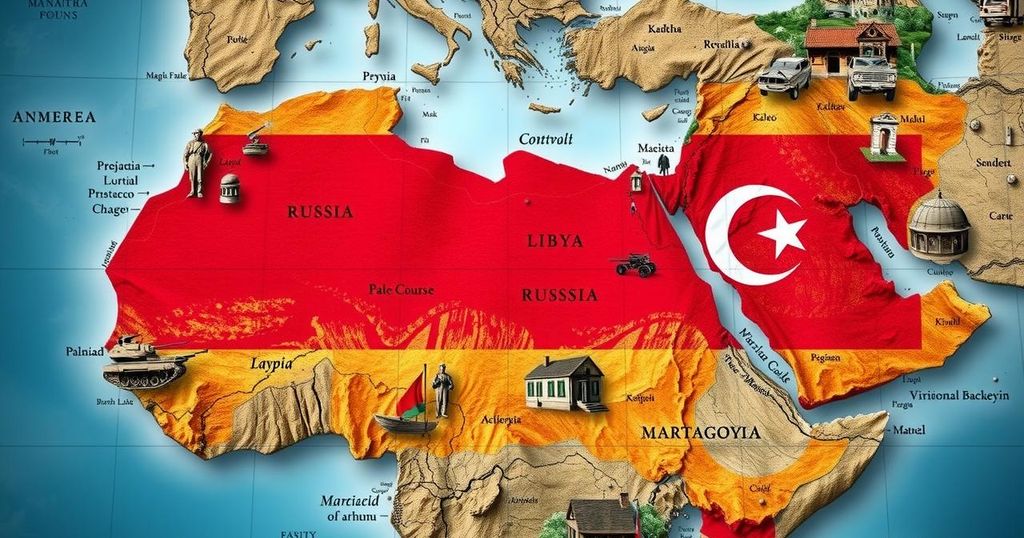Following Bashar al-Assad’s fall, Russia is shifting from Syria to Libya as a foothold in Africa. Russian support for Khalifa Haftar includes military resources transferred from Syria. Experts suggest this move aims to preserve Russian missions and disrupt Western interests, but Libya’s complex political situation poses challenges for sustained influence.
The geopolitical landscape is shifting as Russia redirects its focus from Syria to Libya following the fall of its longtime ally Bashar al-Assad. Analysts suggest that Russia’s strategic interests in the Mediterranean and Africa, particularly in regions like the Sahel and Central African Republic, are prompting this move. The Kremlin had established military operations in Syria, which are now under threat with the new Syrian leadership under Ahmed al-Sharaa expressing a desire for continued Russian presence but facing the reality of a changing political dynamic.
In Libya, Russian influence is being exerted through support for Khalifa Haftar, the eastern military leader opposed to the UN-backed Government of National Unity based in Tripoli. The presence of Russian mercenaries and military resources indicates a significant commitment to maintaining operations in the region. Reports from intelligence sources have noted the transfer of military equipment from Syria to Libya, emphasizing a shift towards sustaining Russian military influence in Africa.
Experts like Jalel Harchaoui highlight this move as a means for Russia to preserve its interests amid the deterioration of its position in Syria. With approximately 1,800 Russian troops reported in Libya, and military equipment being shipped in, the Kremlin appears to be engaging in a strategy aimed at continuity of its influence, drawing parallels between the roles of Assad and Haftar in respective geopolitical contexts.
The goal for Russia, as articulated by analysts, includes disrupting Western interests and leveraging Libya’s politically fragmented environment to expand its ambitions in Africa. However, challenges exist, particularly given the presence of various international players, including Turkey, Egypt, and Western nations, who are closely monitoring Russian activities in the region. The situation is further complicated by Libya’s complex internal dynamics, which could restrict Russia’s operational effectiveness compared to its former engagement in Syria.
Consequently, the Kremlin must remain cautious not to replicate past mistakes by solely relying on local allies without having a contingency plan. The geopolitical chess game in Libya is fraught with complications, as differing interests among local and international actors will continue to shape the future of Russian involvement in the region.
The article discusses Russia’s shifting focus from Syria to Libya as a reaction to the geopolitical upheaval following Bashar al-Assad’s declining power. The Russian military had established significant footholds in Syria, which have been jeopardized by changes in leadership and political dynamics. Transitioning to Libya, Russia aims to maintain its influence in Africa and the Mediterranean while contending with complex regional politics dominated by various local factions and international interests. This pivot raises critical questions about the sustainability of Russian military operations in a politically fractured landscape.
In conclusion, Russia’s strategic shift from Syria to Libya signals an attempt to preserve its influence in Africa amidst changing political tides. The involvement with Khalifa Haftar reflects an ongoing commitment to disrupt Western interests while consolidating military resources in the region. However, the complex political situation in Libya, coupled with the varied interests of international stakeholders, presents significant challenges for Moscow in achieving its objectives effectively. Moving forward, the Kremlin must navigate these dynamics carefully to maintain its operational presence in the region without repeating prior missteps.
Original Source: thedefensepost.com






